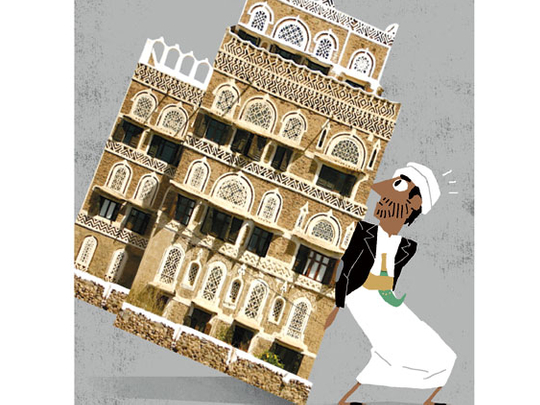
Although I was born in Aden, I spent my so-called “formative years” in Scotland, where I studied medicine at the famous University of Edinburgh. That took six years in those days, plus a year of internship, followed by postgraduate training in public health and paediatrics — a total of nearly a decade. And I got married in Inverness!
Thus, I think I can claim some knowledge of Scotland and I would admit a great deal of admiration for the hardy and proud Scots. Over a cadaver, during an anatomy dissection demonstration, I had teamed up with a Scottish boy. I recall this professor of anatomy looking at the two of us, pausing for a moment, then saying: “You Arabs and Scots share one quality and that is excessive pride in your origins!” I then learnt that he had taught in Iraq.
Most people have probably read that in negotiations concluded on October 15, the British Prime Minister, David Cameron, and Scotland’s First Minister, Alex Salmond, agreed on the single in-or-out question over the sovereignty choice facing Scottish voters in 2014. A lot of people, especially in Europe, will be following the outcome with great interest, because of the implications of an independent Scotland, and how it will impact the currently shared Queen, sovereignty, currency, armed forces etc.
As might be expected, the Scots are divided into three roughly equal-sized camps. The first lot wants independence. The second prefers status quo. A third would like to stay in the union, but with enhanced powers for Scotland. But the mere fact that these people, the English and the Scots, who have been one nation for 300 years, and who battled through two World Wars together, would even contemplate separation must give hope to the people of South Yemen, who are also divided over the ideal fate for all the people of what since 1994 has been called Yemen. This division is of course not surprising for those who know or have experienced the last 20 years of misery in South Yemen, starting with the communist regime, then ending up as a virtually colonised part of Yemen, pillaged and raped by the government of Ali Abdullah Saleh and his henchmen, aided and abetted by opportunists and sycophants, themselves born and brought up in Aden. Not surprisingly, there are scores to settle with oppressors from the north, but also with their agents from the south. Long festering economic and humanitarian crises continue throughout Yemen, with no end in sight, partly because of the continued meddling of the former president, who is ruling the country through the vital positions of security and armed forces, still occupied by his son and nephew — again with no end in sight.
So, is it surprising that the helpless, mainly unarmed, highly educated southerners, who have lived under civilised and orderly British rule of law for more than a century, would seriously contemplate complete independence, or at a minimum, some form of confederation, away from the obsolete tribal system in the north, armed to the teeth and boasting 50 million weapons in a population of 20 million?
Even while politicians, under pressure from the Gulf Cooperation Council (GCC), in the capital Sana’a, prepare for national dialogue, Zaidi rebels, known as Al Houthis, and Salafist fighters of the Islah Islamist party, are jockeying for advantage in looming battles in the north. Recent clashes have killed dozens of people and inflammatory rhetoric warns of fast approaching violence.
And in all this interminable mess, the people of Hugariyah, around the beautiful city of Taiz, which I love, are wondering about their fate. They are peaceful, relatively educated and have a great affinity for those in Aden and the south, with whom they share so very much. Indeed, so many in south Yemen, like me, have grandfathers or great grandfathers who moved to Aden from the Taiz area, to start new lives in British-ruled Aden. One would venture to guess that given a choice, they would join south Yemen in a new country. But will they ever have the opportunity to make that choice?
Indeed, the question for all Yemenis is: Will they ever have the opportunity to make a truly free choice? For it is clear that as long as Saleh is allowed to meddle in Yemeni politics, either directly or through his family members, he will do everything possible, with the huge plundered wealth he has amassed, estimated to be in billions, to frustrate the democratic rights of Yemenis for long enough to make a comeback through some fake or bought elections. In a very corrupt country, with one of the lowest per capita GDPs in the world, Saleh should have no difficulty in buying the loyalty of the majority of Yemenis, including those in the current cabinet. In the meantime, the country is run by a president, foreign minister and prime minister, all born in south Yemen — the former two being previously staunch supporters of Saleh, despite his crimes. While this may sound to some like wild speculation, I believe the next couple of years should help chart the long-term future of Yemen.
Dr Qais Ghanem is a retired neurologist, radio show host, poet and novelist. His two novels are Final Flight from Sana’a and Two Boys from Aden College. His non-fiction My Arab Spring, My Canada was published by Amazon.










